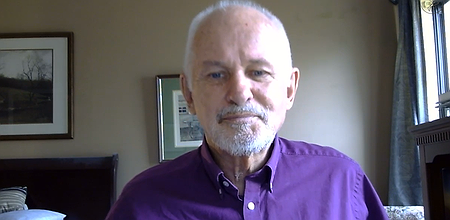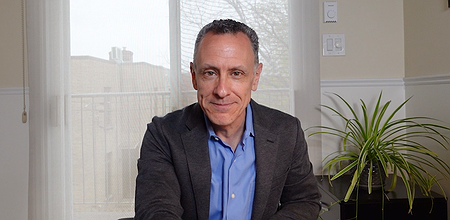- Develop individualized treatment plans for clients with Major Depressive Disorder (MDD) and related depressive disorders
- Implement evidence-based strategies such as safety planning, behavioral activation, and cognitive restructuring to manage symptoms and improve client outcomes
- Apply relapse prevention methods to sustain therapeutic gains and support long-term mental health and well-being for clients with depressive disorders
CBT for Depressive Disorder: A Clinician's Guide
Dre Deborah Schwartzman, Psychologist
Clinical Techniques for Effective Depression Treatment
Excerpt:
- 3h of continuing education
- 24 lessons that last from 5 to 15 minutes each
- 1 certificate of achievement
- 1 PowerPoint
- 1 bibliography
- 1 course evaluation
- 7-day money back guarantee
- Unlimited access
- 97% of participants who completed the satisfaction survey declare they would recommend this course to a colleague
Overview
Major Depressive Disorder (MDD) is notoriously challenging to overcome, as its core symptoms include a lack of energy and self-defeating thoughts. To support you in guiding your clients toward recovery, Dr. Deborah Schwartzman, an experienced clinician, has compiled the most effective clinical techniques and best practices into a definitive guide. This comprehensive resource focuses on treating MDD and related depressive disorders using Cognitive Behavioral Therapy (CBT).
You will be guided through a comprehensive CBT protocol, focusing on the assessment, conceptualization, and development of individualized treatment plans for clients with MDD and its specifiers.
Evidence-based strategies, such as safety planning, behavioral activation to alleviate inactivity and anhedonia, cognitive restructuring to challenge maladaptive thought patterns and schemas, will be covered.
Additional topics include mood regulation strategies, problem-solving skills and communication techniques to address daily challenges.
In this workshop, Dr Schwartzman will also present relapse prevention methods to equip clinicians with tools to help sustain therapeutic progress and improve long-term well-being.
By the end of this workshop, you will have a thorough understanding of how to apply these evidence-based CBT interventions to enhance mental health outcomes for clients with depressive disorders.
Accreditation
Collège des médecins du Québec
For physicians who practice psychotherapy, training recognized by the Ordre des psychologues du Québec is automatically considered as activities adopted by the Collège des médecins, in accordance with Article 3 of the Regulation.
For physicians who do not practice psychotherapy, the College evaluates each recognition request based on the following criteria:
- the relevance of the activity to the practice of the profession
- the skills and experience of the trainer
- the quality of the content and its adequacy with the physician's practice
- the pedagogical framework of the activity
- the quality of the documentation provided
- compliance with the training objectives set out in the regulation
- the presence of a certificate of participation or an evaluation
About the expert

Dr. Deborah Schwartzman, psychologist, is an experienced psychologist who provides clinical services to a wide variety of clients and patients. She however specializes in providing support and treatment for individuals struggling with post-traumatic stress disorder, anxiety disorders, and mood disorders.
She has extensive research and clinical experience in Cognitive Behavioural Therapy (CBT), a well-established and evidence-based approach. In addition to her clinical work, Dr. Schwartzman provides clinical training and supervision to graduate students and interns as well as mental health professionals.
Learning objectives
Learning material
A theoretical course illustrated with clinical examples. This course is composed of videos of 5 to 15 minutes each. The PowerPoint of the course to download.
Syllabus
- PowerPoint
- 1. Introduction
-
Foundations and Assessment in Treating Depression
- 2. Introduction to Major depressive disorder and other depressive disorders
- 3. Understanding the dimensions of MDD
- 4. Why CBT
- 5. Assessment
- 6. Risk Assessment & Management
- 7. Case Conceptualization
-
Core CBT Techniques and Skills Depression
- 8. CBT Treatment Components & Session Structure
- 9. Psychoeducation
- 10. Cognitive Interventions
- 11. Identifying Distorted Toughts
- 12. Identifying Maladaptive Schemas
- 13. Cognitive Restructuring
- 14. Examples of Cognitive Restructuring
- 15. Additional Cognitive Strategies
- 16. Introduction to Behavioural Interventions
- 17. Activity Scheduling 1- Lifestyle Adjustments
- 18. Activity Scheduling 2- Overcoming Inactivity
- 19. Activity Scheduling 3- Mindful Awareness & Values-Based Goals
- 20. Additional Skills Training
- 21. Relaxation Training & Emotional Awareness
- 22. Specifiers & Other Considerations
- 23. Relapse Prevention & Termination
- 24. Conclusion
- Bibliography
CE Credits
Download a certificate of successful completion.
Audience
This training is intended for mental health professionals.
Your comments
"The content was fabulous. I can't imagine any detail left out in MDD or treatment with CBT. Excellent." (automatically translated)
A social worker
Registration
Ask a question
Do you have a question? Then email us at contact@asadis.net
Frequently asked questions
-
Is there an evaluation at the end of the course?
To validate the achievement of the learning objectives, a final evaluation in the form of true/false questions is required. It must be completed in order to obtain the certificate of completion.
In addition, an optional self-assessment is offered at the beginning and end of the course, allowing you to measure your progress on the targeted skills.
These evaluations are not graded and are intended primarily to support your professional reflection.
-
I have a disability. Can I receive specific support?
Yes! This training is offered as a pre-recorded video format, without subtitles. If you have a disability, we can provide an adapted alternative (technical assistance for viewing or individual supervision). For any request, please contact our disability coordinator at the following address: contact@asadis.net
-
How long do I have access to the course?
After your registration, the course is accessible anytime and from anywhere with unlimited access.
-
When does the course start?
That is entirely up to you! When you buy a course, you'll receive an access link that you can activate when you want.
-
Is there a student rate?
Yes there is! To learn more, email us at contact@asadis.net.
You may also be interested in:
Legal notice
The courses offered by ASADIS are accredited by different professional organisations. In addition, ASADIS is approved by the Canadian Psychological Association to offer continuing education for psychologists. ASADIS maintains responsibility for the program.
The CPA’s approval of an individual, group, or organization as a CE Sponsor or Provider is restricted to the activities described in the approved application or annual report form. The CPA’s approval does not extend to any other CE activity the Sponsor or Provider might offer. In granting its approval, the CPA assumes no legal or financial obligations to Sponsors, Providers, or to those individuals who might participate in a Sponsor or Provider’s CE activities or programs. Further, responsibility for the content, provision, and delivery of any CE activity approved by the CPA remains that of the CE Sponsor or Provider. The CPA disclaims all legal liability associated with the content, provision, and delivery of the approved CE activity.






